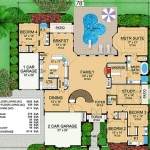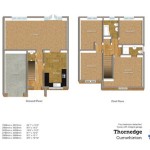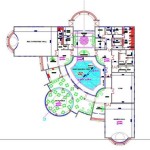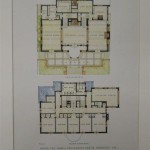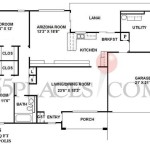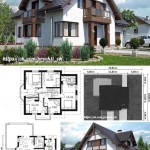Essential Aspects of Drawing a House Plan in AutoCAD
AutoCAD is a versatile software widely used in architecture and design. Creating a house plan in AutoCAD requires meticulous planning and attention to detail. This article explores the essential aspects of drawing a house plan in AutoCAD, empowering you to design your dream home with precision.
Layout and Grid System
The foundation of a house plan lies in its layout and grid system. Determine the overall shape and orientation of the house, considering factors such as natural lighting, ventilation, and site constraints. Establish a grid system to ensure accuracy and consistency in drawing dimensions and locating elements.
Walls and Openings
Walls define the structure of your house. Use AutoCAD's Wall command to create exterior and interior walls, specifying wall thickness, height, and materials. Openings for windows and doors are essential for natural light, ventilation, and access. Utilize AutoCAD's Window and Door commands to insert these elements with precise dimensions and locations.
Flooring and Roofing
Flooring and roofing are vital components influencing the aesthetics and functionality of your house. Use AutoCAD's Hatch and Region commands to create floor plans, specifying flooring materials and dimensions. Similarly, define roof shapes, slopes, and materials using the Roof command, ensuring proper drainage and thermal efficiency.
Furniture and Fixtures
Furniture and fixtures add a touch of realism and usability to your house plan. AutoCAD provides a wide range of block libraries with pre-defined furniture, appliances, and fixtures. Insert these blocks into your plan to visualize the layout and scale of furniture, considering the flow of traffic and ergonomic principles.
Dimensions and Annotations
Dimensions and annotations are crucial for accurate construction. Use AutoCAD's Dimensioning and Text commands to add precise measurements, callouts, and notes to your plan. These annotations provide clear instructions for builders and contractors, reducing errors and ensuring proper execution.
Layers and Line Weights
Layers and line weights contribute to the organization and clarity of your house plan. Separate different elements such as walls, furniture, and dimensions onto distinct layers. Additionally, assign appropriate line weights to emphasize important features and enhance readability.
Scale and Paper Space
Scale is essential for ensuring your house plan fits on a printable page. AutoCAD allows you to set the drawing scale and create viewports in Paper Space for printing purposes. Select an appropriate scale that balances detail with overall readability.
Conclusion
Drawing a house plan in AutoCAD requires a combination of technical skills, design creativity, and attention to detail. By mastering these essential aspects, you can create accurate, visually appealing, and functional house plans. AutoCAD empowers you to explore design possibilities, refine your ideas, and bring your dream home to life.

Making A Simple Floor Plan In Autocad Part 1 Of 3

How To Draw Floor Plans In Autocad Edrawmax

Basic Floor Plan Drafting In Autocad 7 Steps Instructables

First Floor Plan Of Residence Detail Presented In This Autocad Drawing File 2d Auto Cad Ca Layout

Autocad Drawing And Coohom Design 3d Fast Rendering Blog

Is Autocad The Best Floor Plan For Estate Agents Elements Property

33 5 X45 Amazing 2bhk East Facing House Plan As Per Vastu Shastra Autocad Dwg And File Details Cad Free Plans Budget

How To Draw Floor Plans In Autocad Edrawmax

Floor Plan Free Cads

30 X30 House Layout Plan Autocad Drawing Dwg File Cadbull


